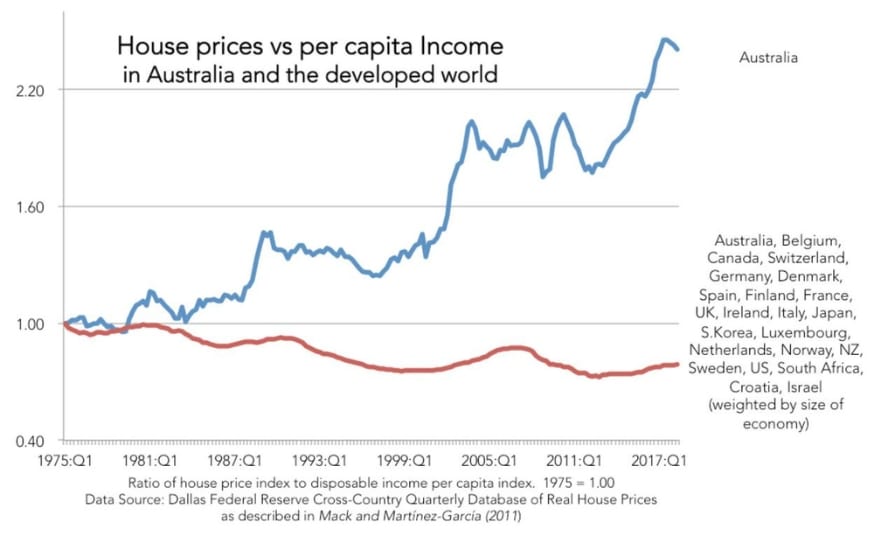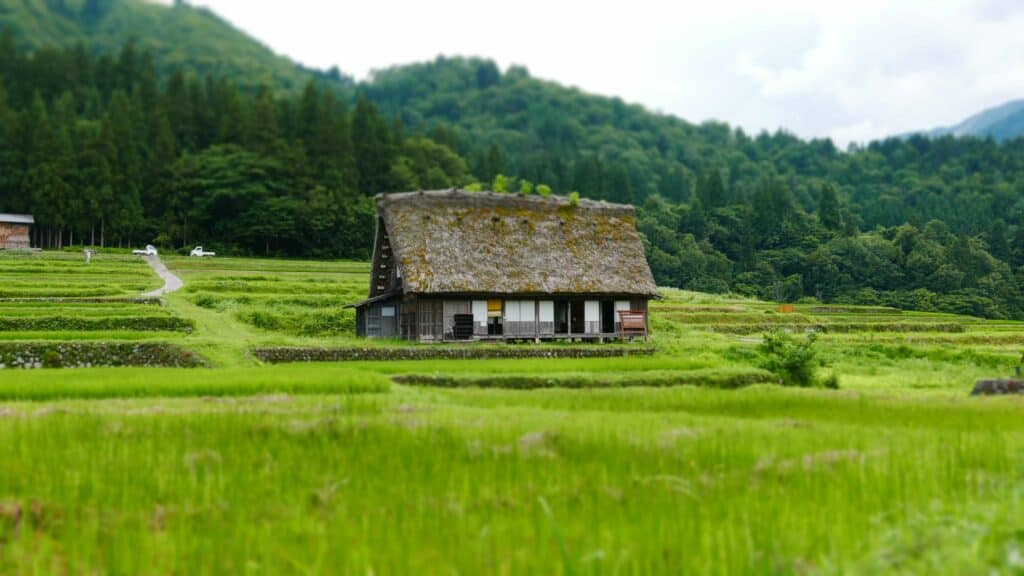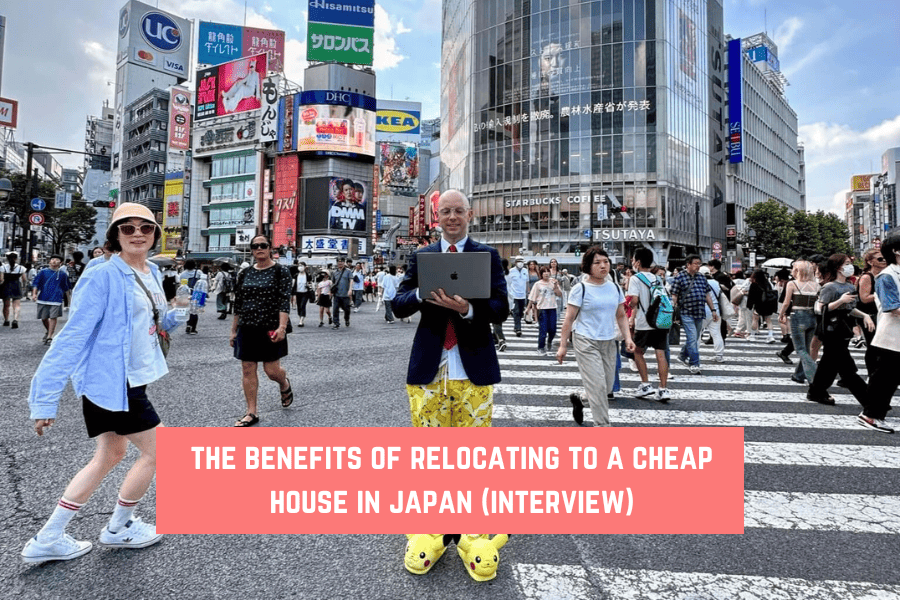Nick started a company called Japan Remotely to help people achieve the best of both worlds: live in Japan and work remotely. He shares his thoughts about the financial benefits of relocating to a cheap house in Japan.
Would you mind quickly introducing yourself to our readers? How long have you lived in Japan and what brought you there originally?
What made you interested in cheap houses in Japan?
Nick: When I left Japan, I experienced some serious reverse culture shock regarding the cost of living. Particularly housing. I found it difficult to save any money because so much of my budget was consumed by rent. When I thought about buying a house, I was again shocked by the cost and complexity. You’ve got to come up with 5-6 figures for a down payment, and then after that continue to pay thousands of dollars every month. I learned that of that monthly mortgage payment, only a fraction actually goes toward paying down the house.

Source: Statista

Source: News.com.au
“When I left Japan, I experienced some serious reverse culture shock regarding the cost of living. Particularly housing. I found it difficult to save any money because so much of my budget was consumed by rent. “
I knew there were cheap houses in Japan, but until I found your Instagram, I didn’t realize the vastness of the availability. Literally millions of them. A lot of them are in fantastic shape too. Meanwhile, people over here are out bidding each other for million dollar plots of dirt with a shack on top!
Are you thinking about buying a cheap house then?
Nick: Yes, but there’s a few problems to work out. First, if I were to buy a cheap house now, it wouldn’t really solve my housing cost problem because I don’t live in Japan. I thought about buying one as a vacation house and renting it out on Airbnb, but I learned that it’s not so simple. The rules for Airbnb in Japan are restrictive and demand outside the major cities is minimal. I worry it would end up being a money pit rather than contributing back to my finances.

What about living in a cheap house?
Nick: That is an excellent idea. Relocating to the cheap house would solve a lot of my financial problems:
- No more high rent or mortgage payment at home
- No mortgage in Japan (cash payment)
- Potential to re-invest any built-up equity
- Potential to make another revenue stream from the Japan cheap house (farm, B&B, etc)
Of the options of what to do with a cheap house in Japan after you buy it, moving into it has the quickest ROI. The savings from rent or mortgage would quickly add up to the cost of the cheap house. I ran some numbers, and I think most people can break even within 5 years.
Let’s do a high level break even analysis:
| Upfront Costs | |
| Cheap House | $100,000 |
| Relocation | $20,000 |
| Total | $120,000 |
| Saving/month | |
| Rent/Mortgage | $2,000 |
| Break Even Analysis | |
| Months | 60 |
| Years | 5 |
If you want to see a more in-depth hypothetical scenario, you can check out this blog post. In general, the cost of living in Japan is lower than a lot of other developed countries, so it’s possible to break even faster.
What would you do about work or a visa?
Nick: Since I work remotely, I’m aiming for the best of both worlds: save money in Japan, make money abroad. If I’m honest, I’ll probably make a little less money in Japan, but the cost savings and peace of mind from being free of housing debt are very attractive to me.
Unfortunately, there isn’t a visa today that would allow me to move to Japan using my remote work. Some countries have a “digital nomad” visa, and while Japan might have one in the future, they do not have one today.
However, there are several alternative methods to achieve the same outcome: income based abroad, residence in Japan. For those without family or ancestry in Japan, work visas and investor/management visas are the primary two paths I recommend. I am leaning toward getting a work visa because they are easier to get and maintain. They are also surprisingly flexible for a variety of business models.
Any parting advice for others considering buying a cheap house in Japan?
Nick: Even if you are not thinking of relocating right away, buying a cheap house now could be beneficial in the future should you decide to. The reason is you won’t have to find a place to rent! Right now there is a catch-22 when moving to Japan: you need an address for your visa application, you can’t get a local bank account without an address, most apartments will not rent to you if you don’t have a local bank account. Having a house solves that problem!
A big thank you to Nick for sharing his story here. What do you think? Would you like to relocated to Japan too?
If you need inspiration to find your dream vacation house in Japan, follow Cheap Houses Japan on Instagram.
Looking for more advice about buying a house in Japan? Read this article I wrote:
